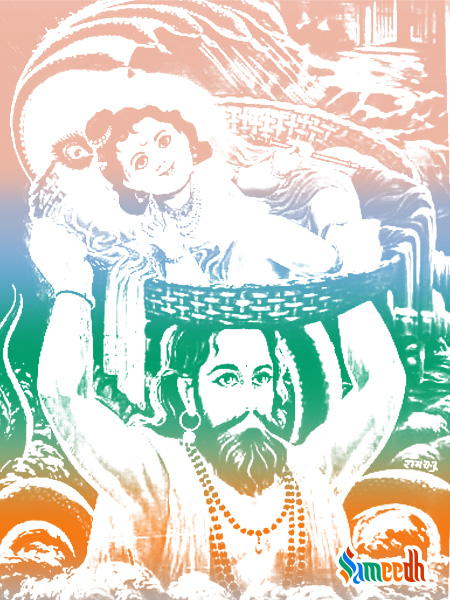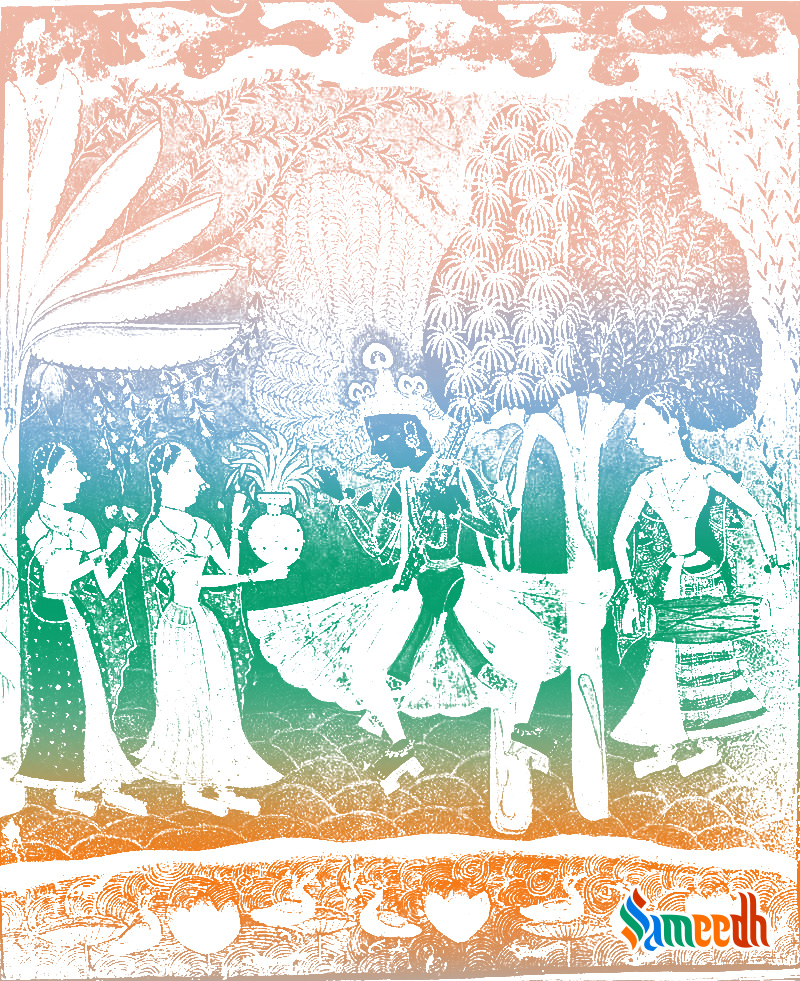Krushna, often referred to as Krishna, is a Hindu deity. He is revered as Vishnu’s eighth avatar as well as the greatest God in his own right.

Krushna, often known as Krushna, is a Hindu deity. He is revered as Vishnu’s eighth avatar as well as the greatest God in his own right. He is the god of protection, compassion, tenderness, and love, and is one among India’s most well-known and revered divinities. Hindus commemorate Krushna’s birthday every year on Krushna Janmashtami, which comes in late August or early September on the Gregorian calendar, according to the lunisolar Hindu calendar.
Krushna Leela is the name given to anecdotes and narratives about Krushna’s life. He appears in the Mahabharata, Bhagavata Purana, Brahma Vaivarta Purana, and Bhagavad Gita, as well as many other Hindu philosophical, theological, and mythological literature. They present him as a godchild, a trickster, a model lover, a divine hero, and the universal ultimate being, among other things. His iconography echoes these traditions, depicting him as an infant sucking butter, a young kid playing the flute, a young lad with Radha or surrounded by women admirers, or a charioteer giving Arjuna advice at various periods of his life.
Life Story
Krushna is born to Devaki and her spouse, Vasudeva of the Yadava tribe in Mathura, according to the Krushna Charitas. Kamsa, Devaki’s brother, is a tyrant. According to Puranic tales, fortune tellers told Kamsa at Devaki’s wedding that a child of Devaki would kill him. Kamsa’s death is sometimes described as being notified by an akashwani. Kamsa plans to assassinate Devaki’s entire family. When Krushna is born, Vasudeva secretly transports him over the Yamuna River and trades him. Krushna is raised near modern-day Mathura by Nanda and his wife Yashoda. According to mythology, two of Krushna’s siblings, Balarama and Subhadra, also survive.
Krushna’s return to Mathura is then described in stories. After repelling many assassination attempts by Kamsa, he overthrows and kills the tyrant monarch, his uncle Kamsa/Kansa. He restores Kamsa’s father, Ugrasena, as Yadava monarch and rises through the ranks of the palace. According to Shanta Rao’s version of the Krushna narrative, after Kamsa’s death, Krushna leads the Yadavas to the freshly recreated city of Dwaraka. After that, the Pandavs rose. Arjun and the other Pandav princes of the Kuru kingdom become friends with Krushna. Krushna is an important and central character in the Mahabharata, where he narrates the Bhagavad Gita, upon which the foundation of Hinduism is laid.

Life Lessons
You will not get things or results out of the blue if you do not work or do your duties. This is one of the most valuable lessons from Lord Krushna’s teachings. You must carry out your responsibilities without thinking about the conclusion or end result. While this is not to indicate that having hopes or being hopeful is bad, it does mean that if you don’t take action, your path will be disastrous. The key is to not focus too much on the end outcome and instead enjoy the journey to get there. Your total productivity will improve if you focus on the process rather than the result.
From anger to sacrifice, and from modesty to mindfulness, there is no lesson that Krushna hasn’t taught us.
Anyone who has read the ancient Indian epic Mahabharata would be familiar with the crucial figure Lord Krushna. He is Vishnu’s eighth avatar, and he is one of Hinduism’s most popular deities. Krushna is more than a Hindu God; he is the greatest spiritual instructor the universe has ever seen. He changed mankind’s spiritual and chronological fate. He taught the world about dedication, dharma, and the ultimate reality. Shri Krushna has always served as a role model for individuals, both in the past and in the present world, and he will continue to do so in the future.